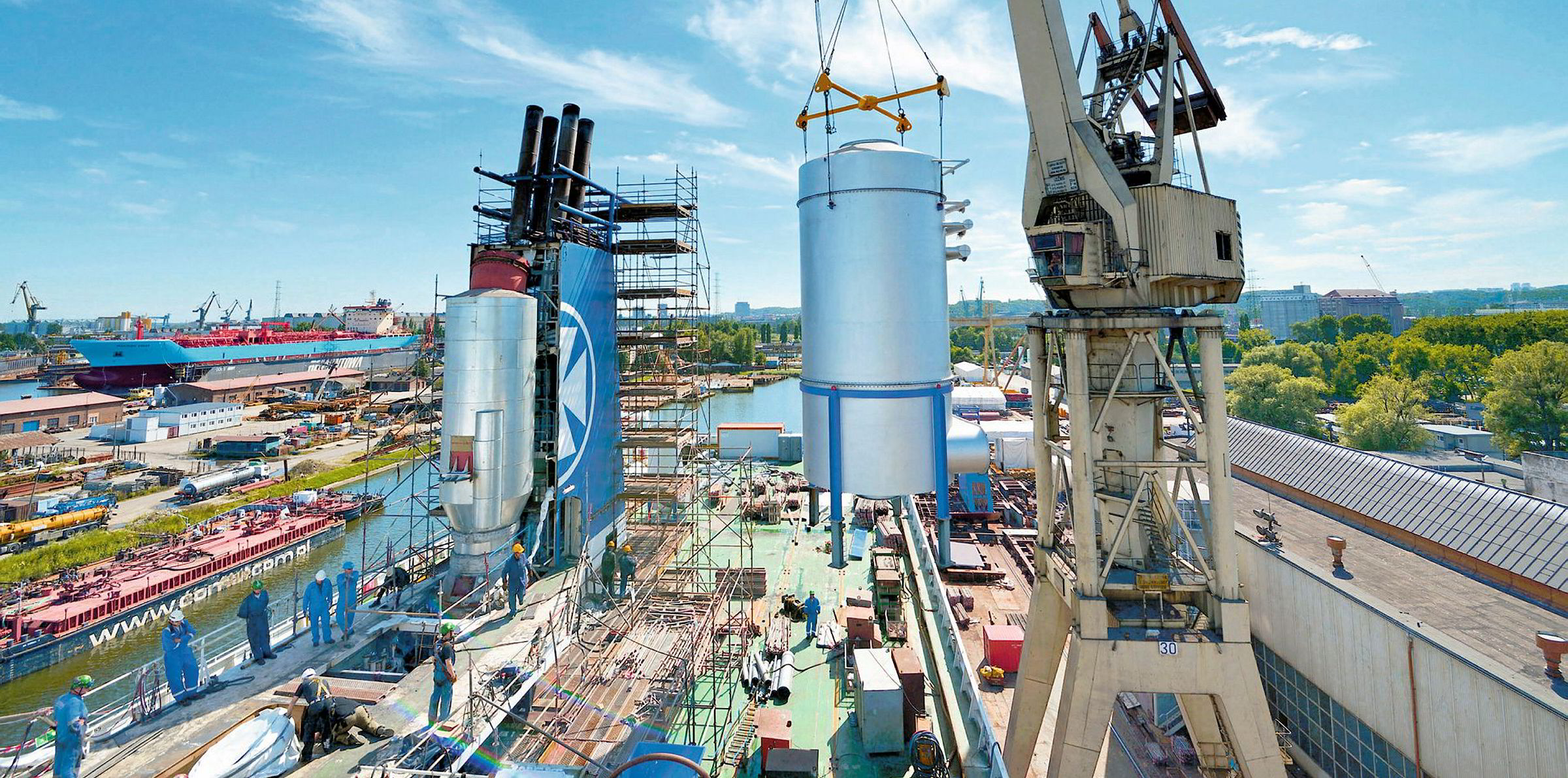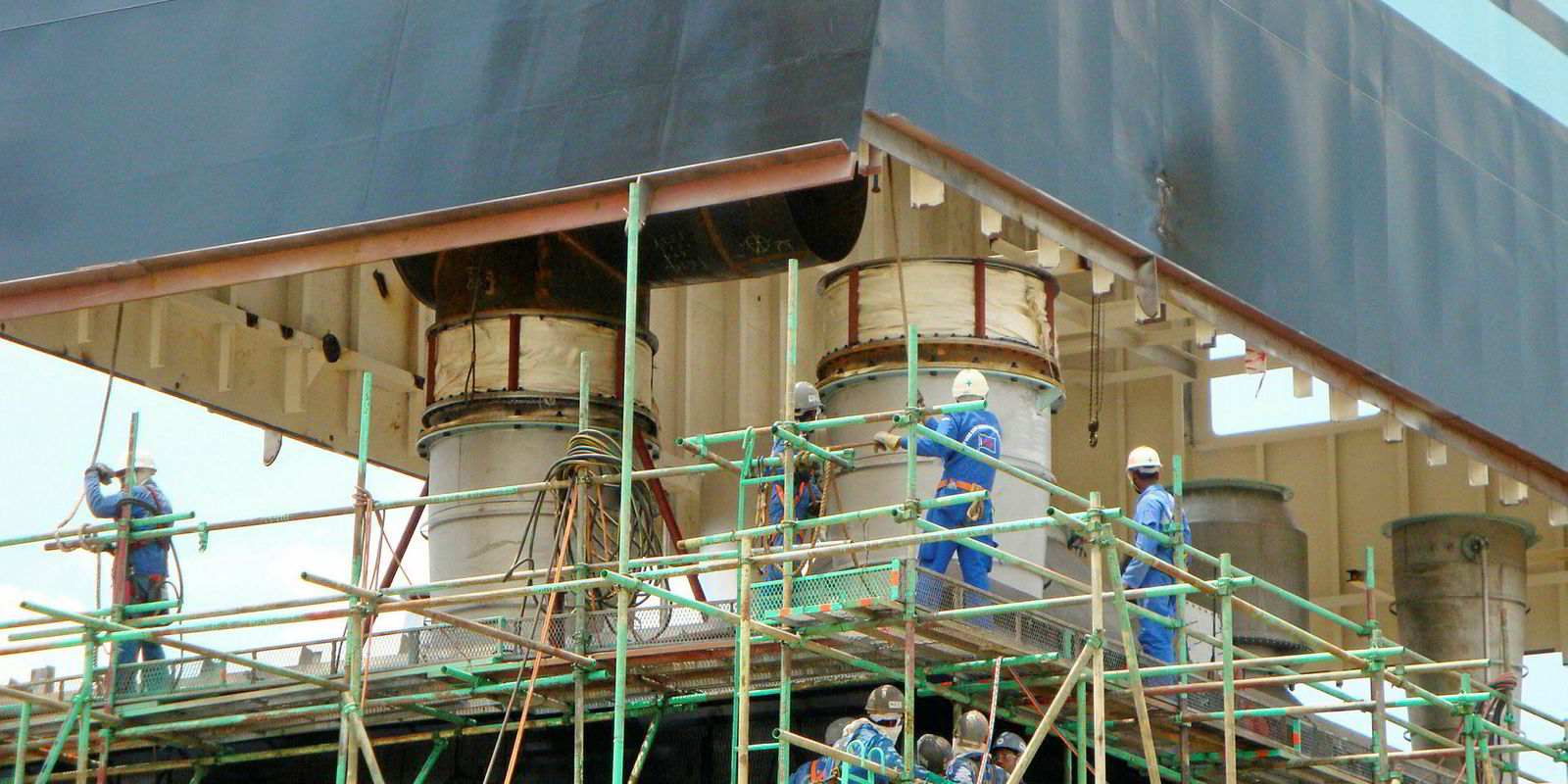A Canadian environmental group is commissioning a study to discover whether exhaust gas scrubbers pose any harm to marine life, amid conflicting views regarding their potential impact.
Clear Seas Centre for Responsible Marine Shipping has hired Canadian ship designer Alion Science & Technology to conduct a study on the environmental impact of open-loop systems in Canadian waters.
Numerous ports worldwide are banning such scrubbers over concerns that the wash water effluent may damage sea life.
Clear Seas has identified an information gap in the conversation on scrubber use
Meghan Mathieson
Scientists argue they may be harmful while scrubber advocates claim the units, also known as exhaust gas cleaning systems (EGCS), pose no threat.
"Clear Seas has identified an information gap in the conversation on scrubber use," research manager Meghan Mathieson told TradeWinds.
"Those who are advocating for scrubbers can only say that there is no evidence of harm while those who are banning scrubber use can only say that they are concerned about potential impacts."
Alion did not return an email seeking comment.
"We selected Alion’s proposal based on their understanding of the issue, the detailed methodology they provided, their past experience investigating scrubbers, and the depth of team experience they offered," Mathieson said.
Clear Seas expects to have the results of the study by the summer.
More research needed
Mathieson said Clear Seas sees a need for more scientific studies so that decision makers may fully know the impacts.
"Our interest is in providing information to enable evidence-based decision making," she said. "It is not currently known whether, or to what extent, EGCS may harm coastal ecosystems."
Clear Seas reviewed a number of scientific studies before submitting bids for its own science-based investigation into possible environmental impact, Mathieson said.
We assess there is value in focusing research attention on the use of scrubbers for commercial marine shipping in Canadian waters, as, to the best of our knowledge, that has not yet been done
Meghan Mathieson
"We assess there is value in focusing research attention on the use of scrubbers for commercial marine shipping in Canadian waters, as, to the best of our knowledge, that has not yet been done," she said.
"The current discussions surrounding open-loop scrubbers is an issue which stands to benefit from closer examination."
Clear Seas, which would not disclose the study's cost, was founded in 2014 and has six employees overseen by a board of nine directors.
Four years ago, it received CAD 3.7m ($2.81m) in funding from each of the government agencies Transport Canada and Alberta Energy, as well as industry group the Canadian Association of Petroleum Producers.
Transport Canada, which enforces IMO rules, is committed to protecting Canadians and the environment from the potential risks of marine pollution, spokesman Simon Rivet said.
"Vessels can use exhaust gas cleaning systems ... within Canadian waters to meet the fuel oil sulphur standards of up to 0.10% if the systems respect the guidelines set out by the International Maritime Organization," he said.
In 2015, Canada and the US imposed a 0.1% sulphur cap along their coasts through a North American emissions control area.
Scrubber users defend kit
Since last year, dozens of shipowners have invested millions of dollars in open-loop and closed-loop scrubbers to meet looming IMO 2020 regulations.
The rules limit ships to using fuel containing 0.5% sulphur, unless scrubbers are installed or other fuels are burned, such as LNG.
About 30 of these owners formed Clean Shipping Alliance 2020 in the autumn to voice support for their use, alongside industry advocate the Exhaust Gas Cleaning Systems Association.
Both groups have openly discounted the scientific studies, the latest being a German analysis calling scrubbers a "direct pollution source" to the marine environment.
Studies by Japan and Carnival Corp, the latter including 281 wash water samples, contradict previous analysis by claiming scrubbers pose no harm to marine life.
The IMO's subcommittee on Pollution Prevention and Response read these and other studies on scrubbers last week during a conference in London.
The subcommittee concluded in its report, to be reviewed in May by the IMO's Marine Environmental Protection Committee, that more scrubber studies are needed.





